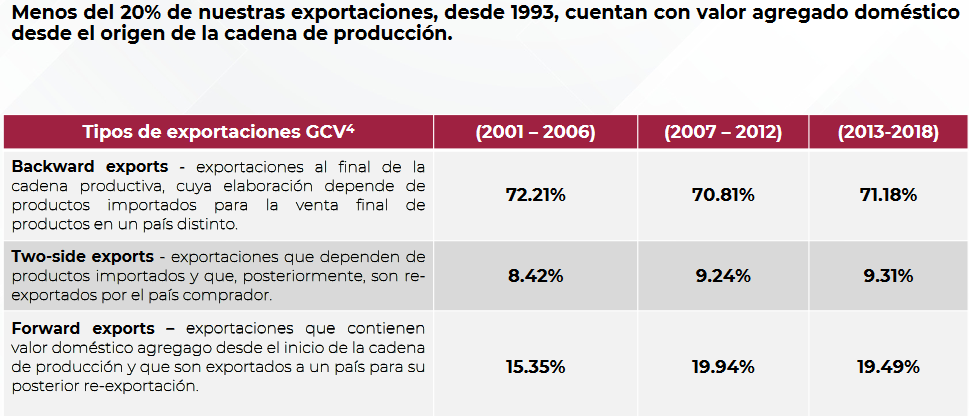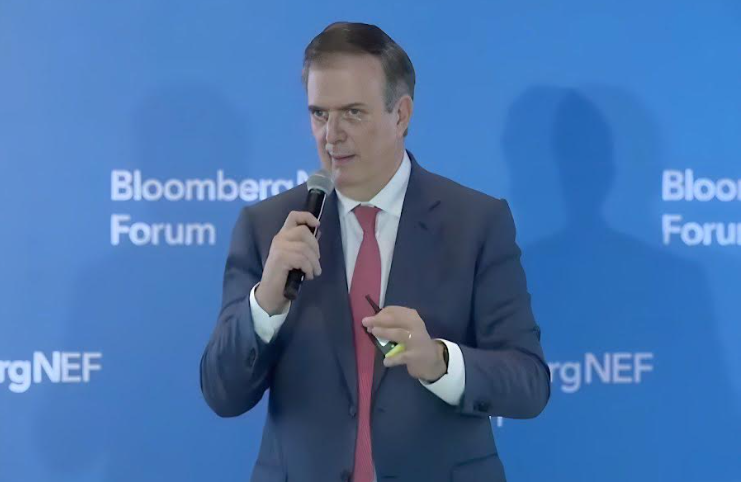The added value in Mexican exports has remained without substantial changes in the last two decades, questioned Marcelo Ebrard, Secretary of Economy.
From January to August 2024, product exports from Mexico were 406,091 million dollars, an increase of 3.6% compared to the same period in 2023.
Ebrard has served as Secretary of Economy since October 1 and these are his first thoughts on Mexico’s international trade that he has released from that position.
Mexico is the ninth largest exporter of products in the world and 89.5% of its foreign sales correspond to manufactured goods.
With suppliers mainly from Asia and North America, the Mexican economy has specialized in the production of final goods and one of its pending issues is to increase the domestic content of its exports, where it now has an opportunity in certain industries as a result of the trade and technology war between the United States and China.
Value added in Mexican exports
“The value content in Mexico of those exports has remained stable throughout the century,” Ebrard said at a forum organized by Bloomberg, in Monterrey, Nuevo Leon, where he presented the following chart.

Mexico ranks first among all U.S. trading partners, and the United States is Mexico’s most important trading partner, with 80% of its exports going to the United States.
Much of the economic relationship between the two countries occurs in the context of the 2020 Treaty between Mexico, the United States and Canada (USMCA), which replaced the 1994 North American Free Trade Agreement (NAFTA).
According to Mexican government data, the United States is the largest source of foreign direct investment (FDI) in Mexico, accounting for 37.8% of total FDI flows to Mexico in 2023.
“Our mission is not just to increase our market share in U.S. imports, but to increase what we produce in Mexico. This, yes or yes, we have to work with each company, and we have to allocate resources, follow-up, perseverance, so that this goes up, because if not, we are not going to achieve our national objectives,” Ebrard concluded.

